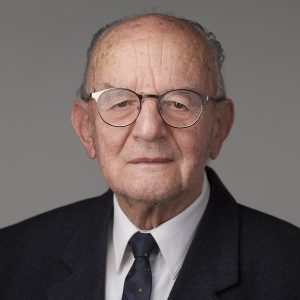FACTS
The applicant is owner of the mark „praktika” registered in class 16 (prints etc.). The owner of the prior mark „Praktiker”

, registered in class 16, requested cancellation of the mark applied for later than his mark. The Hungarian Intellectual Property Office (HIPO) held that the two marks are confusingly similar, the difference is only in respect of the first and last letters (“a” – “er”). Moreover, there exists the danger of association by the consumers, as goods in class 16 are also identical or similar with each other.
The owner of the cancelled mark requested review with the Metropolitan Tribunal. This was rejected. The Tribunal held also that the terms “praktika” and “Praktiker” are confusingly similar in respect of the global assessment. The two marks must be examined regarding their basic function, namely the distinction of the certain goods from other goods. The word “Praktiker” is visually and obviously phonetically similar to the mark cancellation of which had been requested. This fact is not altered by the different ending of the two marks, as this cannot eliminate the complete identity of the beginning of the two word marks. The word “praktika” is of Greek/Latin origin, the word “Praktiker” is a German word, but the average consumer does not analyze them, he associates in respect of both marks to the notion “practicability”. As a result, the consumer can conclude that the goods originate from the same company, respectively, that the marks belong to the same trademark family. The goods in class 16 of the defendant are identical or similar to the goods listed for the mark claimed in the same class of the claimant. As a result, the Tribunal stated that there exists a likelihood of confusion between the two signs, as well as among the goods in class 16.
In his request for review filed with the Supreme Court the defendant claimed for annulation of the Tribunal’s decision. This appeal was unsuccessful. The Court said that not only the confusion exists but also the possibility of confusion, which excludes protection of the later similar mark. Moreover, the possibility of refusal can be also well-founded if the average consumer can confuse the two marks. As a result, the Court concluded that the danger of confusion, in accordance with the view of
the Tribunal exists. Therefore, it cannot be held that in respect of the average consumer, confusion would be excluded. It is irrelevant that the Tribunal held correctly how the parts used their mark in their commercial activity (Pkf.IV.22.434/2001).
Comments
“Praktiker” is initially a German hardware store chain, established in Hungary in 1998. There are now 20 Praktiker hardware stores in Hungary, the name of which together with its logo is reputed in Hungary.
The three instances (Office, Tribunal, Court) unanimously decided for cancellation of the later mark, stating that there is likelihood of confusion. I believe that almost all offices and the European Court of Justice would have rendered a similar decision.
I referred to this case as an example of methodology in respect of examination of danger of confusion. The main elements of examination which can be found in the reported decisions are as follows:
- similarity of the marks
- similarity of the goods,
- average consumer,
- his behavior (loose (weak) attention)
- possible association
- global assessment.
These aspects of examination can be found also in several judgements of the European Court of Justice, I refer only to the leading judgement in the Lloyd-case (Case 342/97).
I add only that in the hereabove reported “praktika” – “Praktiker” case the root of the two conflicting words was identical (“praktik”), moreover the prior mark “Praktiker” has been reputed in Hungary.
Final observation
The above reported case is in conformity with the actual Trademark Act (1997). As the system of the jurisdiction was reformed in 2003, today the appeal in similar cases would be judged by the Metropolitan Court of Appeal and not by the Supreme Court.
In-house Counsel
Doctor of the Hungarian Academy of Sciences
Partner







